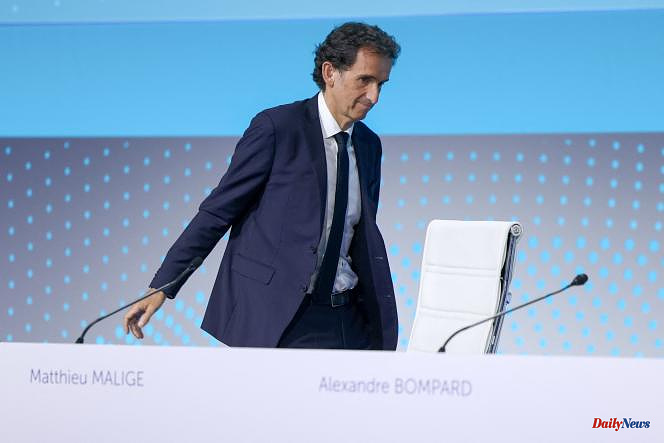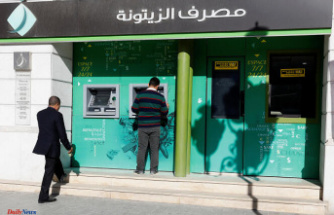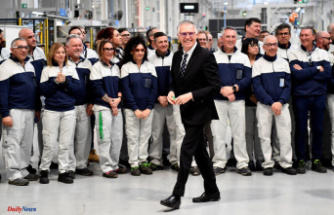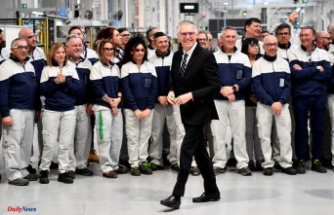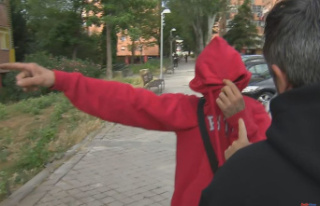Nearly 40% voted "no". Carrefour shareholders agreed to the compensation of Alexandre Bompard, Chairman and CEO of the group, for 2022 and 2023, but, like last year, with a relatively narrow margin, during the general meeting of the group , Friday, May 26.
His remuneration for 2022, evaluated at more than 9 million euros by the General Confederation of Labor (CGT) – a figure disputed by the group – was approved at 60.69% and that of 2023 at 56.75%. , relatively low and rare proportions within large groups.
Carrefour argues that it includes so-called "long-term" elements, conditional on the achievement of certain objectives. In addition, the early renewal of the CEO's mandate until 2026, announced at the end of March to "align" it with the retailer's strategic plan, presented in November 2022, was approved, but almost 20% of shareholders voted against.
Previously, the group's unions, in particular the French Democratic Confederation of Labor (CFDT) and the CGT, had deemed Mr. Bompard's remuneration excessive in view of his social balance sheet. It is broken down, according to Carrefour, into a fixed part (1.5 million euros), a variable part (up to twice the fixed part) and long-term compensation (up to "60% of the compensation overall maximum”).
"Unacceptable", for the CGT
For the CGT, which had called for a rally in front of the doors of the general assembly, organized in the inner suburbs of Paris, to "denounce the carnivorous methods" of the group "vis-à-vis the workers", the sum is "unacceptable, even indecent".
"It's difficult to explain this remuneration to employees, especially with regard to the company's social policy, the downsizing or the transition of stores to lease-management", estimates Sylvain Macé, CFDT delegate within the group, interviewed by Agence France-Presse.
The unions see in this transition to lease-management a form of franchise system in which Carrefour remains the owner of the business, a low-noise social break. The CFDT estimates that Carrefour's workforce has shrunk by 30,000 people since 2018, from 115,000 to 85,000.
In front of his shareholders, Alexandre Bompard responded by assuring that when he arrived at the head of the group in 2017, "all the experts in the sector" said that the hypermarket format "was dead". Since then, Carrefour "has not closed any hypermarket, while other players have done so", he pleaded, adding that "each of the hypermarkets passed into lease-management [had] progressed since". It plans to increasingly rely on a franchise store operating model.
Indirect emissions
Carrefour has also been summoned by small shareholders, who say they represent 1.1% of the capital, to clarify the calculation of its greenhouse gas emissions. The Board of Directors, criticized for several months by specialized associations, which doubt the sincerity of its commitments in this area, has submitted to the vote of its shareholders a more precise communication plan of the levers used to reduce its indirect gas emissions. greenhouse, which was approved, at 93%.
Carine Kraus, Engagement Executive Director, detailed the group's four levers for action to reduce its indirect emissions (which constitute almost all total emissions) by 29% by 2030. In particular, the group intends to rely on the efforts of its suppliers and develop plant-based foods.
Finally, a shareholder questioned the management about the recent arrival of the distributor in Israel, through a partnership with the Israeli group Electra Consumer Products and its subsidiary Yenot Bitan, likely in his view to make the company "accomplice" of a "policy of illegal colonization of the Palestinian territories". Laurent Vallée, general secretary of the group, replied that "no Carrefour store will be present in the territories mentioned". "There is no complicity, we take care on this point to prevent any risk," he added.

